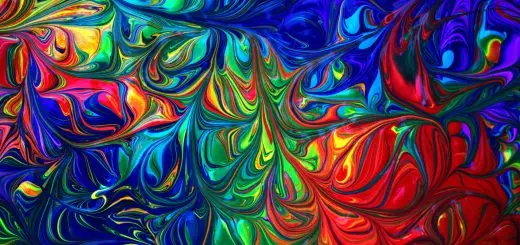Understanding Feng Shui History and Origins

Looking for more amazing products? Check out our online store and explore our collection here! Happy shopping!
Before diving in, please note: This post is for informational purposes only. If you’d like to know more about how we approach topics, feel free to check out our friendly Disclaimer Page.
Hey there, amazing readers! 
We’re committed to delivering quality posts, and your support (even just sticking around despite the ads) means everything to us. So, bear with us, and thanks for helping us keep the good vibes rolling. Now, on to the fun stuff!
TRANSLATE BUTTON AT THE END OF THE ARTICLE
Exploring the Roots of Feng Shui
Feng Shui, an ancient Chinese practice that focuses on harmonizing individuals with their environment, has a rich history dating back thousands of years.
The term "Feng Shui" translates to "wind-water" in English, reflecting the belief that the natural elements play a crucial role in shaping our lives.
This practice is deeply rooted in traditional Chinese philosophy and has evolved over centuries to become a widely recognized system for creating balance and harmony in various aspects of life.
Ancient Origins in China
The origins of Feng Shui can be traced back to ancient China, where it was initially used to determine the most auspicious locations for burials.
The practice was based on the belief that the placement of a person’s final resting place could impact the well-being of their descendants.
Over time, Feng Shui expanded to encompass not just burial sites but also the design and layout of homes, cities, and other structures.
It became a comprehensive system for promoting prosperity, health, and happiness.
Influence of Taoism and Confucianism
Feng Shui draws heavily from the principles of Taoism and Confucianism, two major philosophical traditions in China.
Taoism emphasizes living in harmony with the natural world, while Confucianism focuses on social harmony and moral values.
Both of these belief systems have had a significant impact on the development of Feng Shui, shaping its fundamental principles and guiding its application in different contexts.
Development of Feng Shui Principles
The principles of Feng Shui are based on the concept of Qi, or vital energy, which flows through everything in the universe.
By understanding how Qi moves through a space, practitioners can optimize the arrangement of objects and structures to enhance the flow of positive energy and minimize obstacles.
Key principles of Feng Shui include the Bagua map, which divides a space into nine areas representing different aspects of life, and the five elements (wood, fire, earth, metal, water), which are believed to interact in various ways to influence energy flow.
Spread of Feng Shui Practices
As Chinese culture spread throughout Asia, so did the practice of Feng Shui.
It became popular in countries like Japan, Korea, and Vietnam, where it was integrated into traditional architectural design and urban planning.
Feng Shui also gained popularity in the West in the late 20th century, as people sought to incorporate its principles into their homes and workplaces to promote well-being and success.
Evolution Over the Centuries
Over the centuries, Feng Shui has evolved to adapt to changing cultural and technological landscapes.
While the core principles remain constant, new schools of thought and approaches to Feng Shui have emerged, offering different interpretations and applications of the practice.
Modern practitioners continue to innovate and experiment with Feng Shui techniques to suit contemporary lifestyles and design preferences.
Role of Feng Shui in Chinese Culture
In Chinese culture, Feng Shui is deeply ingrained in various aspects of life, from architecture and interior design to business practices and personal rituals.
Many Chinese people consult Feng Shui experts when building a new home, opening a business, or making important life decisions.
Feng Shui is seen as a way to align oneself with the forces of nature and maximize one’s potential for success and happiness.
Impact of Feng Shui on Architecture
Feng Shui has had a profound influence on traditional Chinese architecture, with many buildings designed and constructed according to its principles.
Features such as the orientation of a structure, the placement of doors and windows, and the use of certain materials are all considered important factors in creating a harmonious living or working environment.
Even in modern architecture, elements of Feng Shui are often incorporated to promote a sense of balance and well-being.
Feng Shui in Modern Times
In today’s fast-paced world, Feng Shui continues to be a popular practice for those seeking to create a harmonious and prosperous living or working environment.
Many people turn to Feng Shui consultants to help them optimize their spaces for success, happiness, and abundance.
The practice has also gained recognition in fields such as interior design, real estate, and holistic wellness, further solidifying its place in modern society.
Global Popularity of Feng Shui
Over the years, Feng Shui has transcended cultural boundaries and gained popularity around the world.
Its principles of balance, harmony, and energy flow resonate with people from diverse backgrounds and beliefs.
Today, you can find Feng Shui consultants and practitioners in many countries, offering their expertise to individuals, businesses, and organizations looking to harness the power of this ancient practice.
Controversies Surrounding Feng Shui
Despite its widespread popularity, Feng Shui has faced criticism and skepticism from some quarters.
Critics argue that the practice lacks scientific evidence and relies heavily on subjective interpretations.
Others see Feng Shui as a superstition or pseudoscience that preys on people’s fears and insecurities.
However, proponents of Feng Shui maintain that its benefits are real and tangible, promoting well-being and harmony in tangible ways.
Future Trends in Feng Shui
As we move into the future, Feng Shui is likely to continue evolving and adapting to the changing needs and preferences of society.
With advances in technology and design, new opportunities may arise to incorporate Feng Shui principles into digital spaces, urban planning, and sustainable architecture.
The practice may also become more accessible to a wider audience through online resources, apps, and virtual consultations.
Ultimately, the enduring appeal of Feng Shui lies in its ability to offer guidance and support in navigating the complexities of modern life while staying grounded in ancient wisdom.
Conclusion
In conclusion, Feng Shui has a long and storied history rooted in ancient Chinese philosophy and culture.
Its principles of balance, harmony, and energy flow continue to resonate with people around the world, making it a valuable tool for creating positive environments and enhancing well-being.
While controversies and criticisms exist, the enduring popularity and global reach of Feng Shui speak to its lasting impact and relevance in today’s society.
As we look to the future, Feng Shui is poised to remain a vital practice for those seeking to live in alignment with the forces of nature and unlock the secrets to a more fulfilling life.

The Enlightenment Journey is a remarkable collection of writings authored by a distinguished group of experts in the fields of spirituality, new age, and esoteric knowledge.
This anthology features a diverse assembly of well-experienced authors who bring their profound insights and credible perspectives to the forefront.
Each contributor possesses a wealth of knowledge and wisdom, making them authorities in their respective domains.
Together, they offer readers a transformative journey into the realms of spiritual growth, self-discovery, and esoteric enlightenment.
The Enlightenment Journey is a testament to the collective expertise of these luminaries, providing readers with a rich tapestry of ideas and information to illuminate their spiritual path.
Our Diverse Expertise
While our primary focus is on spirituality and esotericism, we are equally passionate about exploring a wide range of other topics and niches 

To ensure we provide the most accurate and valuable insights, we collaborate with trusted experts in their respective domains 
Our blog originally focused on spirituality and metaphysics, but we’ve since expanded to cover a wide range of niches. Don’t worry—we continue to publish a lot of articles on spirituality! Frequently visit our blog to explore our diverse content and stay tuned for more insightful reads.
Hey there, amazing reader! 
Check out our store here and take a peek at some of our featured products below! Thanks for being awesome!











